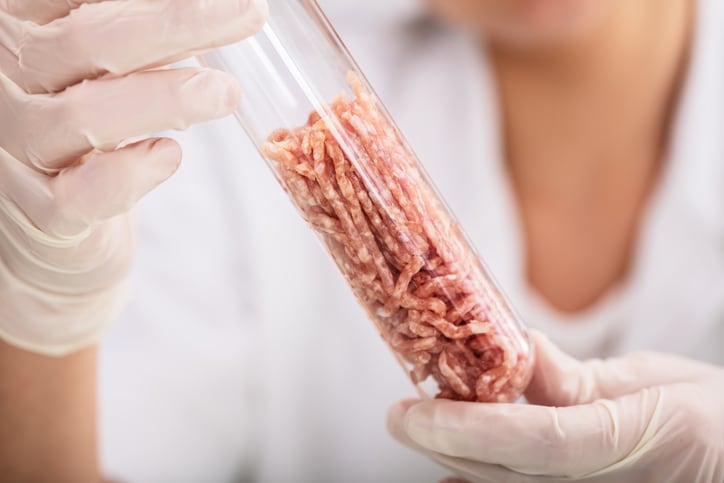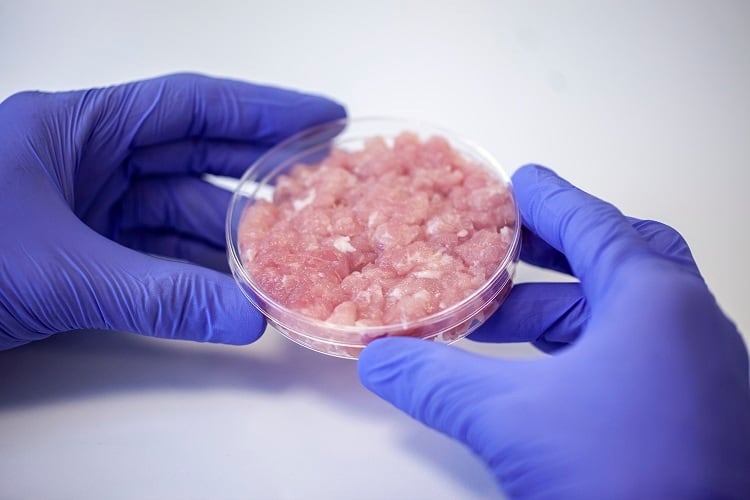A report from accountants Deloitte, commissioned by the Food Standards Agency has set out options for reforming the authorisation process of foods such as cultured meat and animal-free dairy.
Deloitte reviewed the Novel Foods Regulatory Framework – assimilated into UK law following Brexit – after the UK government suggested that changes to the existing novel foods authorisation process could help bring foods with potential climate-mitigation potential to market faster.
The report highlights that “innovation is happening at pace” and the FSA has a crucial role in balancing its priorities on food safety, consumer interests, innovation and the social and environmental impact of the food system.
“With EU Exit, the UK has the option of updating its regulations without having to obtain consensus from other EU nations,” the report stated. “Novel foods regulations can be better tailored to meet the needs of the UK."
It added: “A good regulatory process does not impose unnecessary barriers to innovation” and outlined a series of proposals.
Suggestions include allowing alternative proteins to go on sale in the UK without the usual prolonged approvals process for novel foods, if they have been lawfully sold in other parts of the world. “Developing similar food safety standards with other international regulators to share evaluation resources and potentially reduce risk assessment costs for food regulators,” the report said.
The report also suggests “collaborative regulation” whereby the FSA could authorise novel foods based on decisions of food regulators in other jurisdictions. This would place “more responsibility on industry to assure safety”. The model takes account of the fact that food innovation is global and rapid, and a shared global understanding of novel food safety may hence be appropriate.
According to the report, a single point of authorisation for novel foods is not sustainable in the long term given the pace of innovation and that evidence about safety may develop over time, leading to a conditional authorisation and supervision model, similar to that used in other sectors such as pharmaceuticals.
The FSA could also consider saving time by grouping similar applications into high/medium/low risk cases.
Providing clarity on how businesses can conduct tastings under strict conditions could further make the regulatory regime more business-friendly and innovation-centric.
GFI Europe – a supporter of the cultivated meat sector – welcomed the government’s independent review of sustainable food regulations. It said the recommendations could pave the way for a robust and innovative approach to regulating foods such as cultivated meat and precision fermentation, adding that its range of potential reform options could deliver improvements without requiring an entirely new regulatory system for approving sustainable proteins.
Seth Roberts, policy manager at the Good Food Institute Europe, told FoodNavigator: "Deloitte's independent report is hugely significant, outlining a roadmap for UK regulators to realise the climate and public health benefits of foods such as cultivated meat by refreshing the regulatory process to support companies bringing their products to market.
"This report includes options such as enabling pre-market tastings under controlled conditions and improving the guidance available for applicants which, if adopted, could pave the way for a UK regulatory process that fosters innovation, prioritises consumer safety and confidence. These measures could make the UK's authorisation process more transparent and attractive for companies, enabling foods such as cultivated meat to come to market and deliver their benefits to British consumers quicker."
This latest report also comes a week after the government published its formal response to Professor Dame Angela McLean’s review on pro-innovation regulation for life sciences, which had recommended that ‘the government support the Food Standards Agency (FSA) to find ways to enable the acceleration of plans to reform the approval process for Novel Foods’.
In its response, the government said: “The government accepts the recommendation. It recognises that technological advances are accelerating the development of novel foods, including in the alternative protein sector, and that this represents a commercial and economic opportunity for the UK in the immediate years ahead.”





